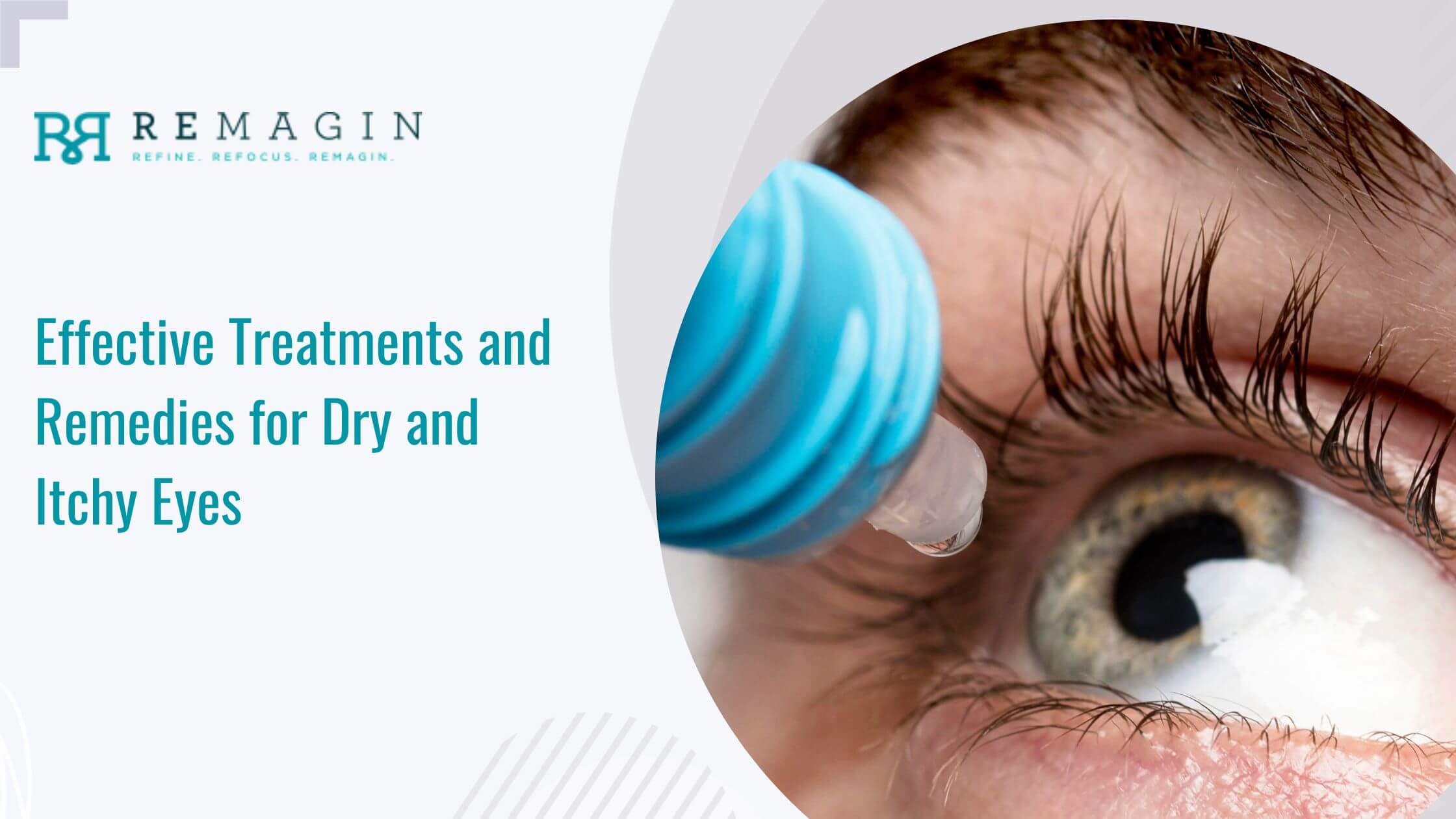



Dry and itchy eyes are common complaints that affect people of all ages. Be it caused by environmental factors, underlying health issues, or lifestyle habits, this condition can lead to discomfort and disrupt daily life. Understanding the causes, symptoms, and available treatments is key to finding relief and improving your quality of life.
Common symptoms include:
If these symptoms persist or worsen, it’s essential to seek professional help to identify the root cause.
Several factors can contribute to dry and itchy eyes:
Prolonged exposure to environmental elements like wind, smoke, or dry climates can significantly impact eye health, leading to dryness and irritation. Additionally, spending excessive time in front of screens without taking regular breaks can strain the eyes and exacerbate dryness.
Underlying health conditions such as allergies often cause redness, itchiness, and discomfort in the eyes. Chronic disorders like Sjögren’s syndrome or blepharitis can further disrupt tear production and contribute to persistent dryness.
Lifestyle habits play a crucial role in maintaining eye health. Insufficient blinking, especially during activities requiring intense focus, can reduce natural lubrication. Wearing contact lenses for extended periods and neglecting hydration or proper nutrition also contribute to dry eye symptoms.
As individuals age, tear production naturally declines, particularly in those over 50. This decrease in moisture can make eyes more vulnerable to dryness and irritation.
Certain medications, such as antidepressants, can interfere with the eyes' ability to produce adequate tears, further contributing to dryness and discomfort.
1. Hydration and Eye Drops
Using over-the-counter artificial tears can provide relief by keeping the eyes hydrated. For frequent use, preservative-free options are gentler on the eyes and help maintain moisture.
2. Advanced Medical Solutions
In more persistent cases, healthcare providers may recommend treatments that address underlying inflammation and promote natural tear production, offering long-term relief for dryness and irritation.
3. Tear Retention Techniques
Small devices, such as punctal plugs, can be used to conserve natural tears by slowing drainage, allowing the eye surface to stay lubricated for longer durations.
4. Lifestyle Modifications
Simple changes can significantly improve eye health. Staying well-hydrated by drinking ample water and using a humidifier to add moisture to indoor air are effective strategies. Following the 20-20-20 rule during screen time, which is looking at something 20 feet away for 20 seconds every 20 minutes, can reduce eye strain and dryness.
5. Nutritional Support
A diet rich in omega-3 fatty acids, found in sources like fish oil or flaxseed, can help maintain tear production and reduce inflammation. Additionally, incorporating eye-friendly nutrients like Vitamin A supports overall
1. Warm Compress
Apply a warm compress to your eyes for 10 minutes to soothe irritation and improve oil gland function.
2. Cold Compress
For allergy-related itchiness, a cold compress can reduce swelling and provide relief.
3. Cucumber Slices
Place chilled cucumber slices over closed eyes to hydrate and cool the area.
4. Tea Bags
Used chamomile or green tea bags can act as a natural anti-inflammatory when applied to closed eyes.
5. Aloe Vera Gel
Apply a small amount of pure aloe vera gel around the eyes (avoiding direct contact) for hydration and soothing effects.
1. Stay Hydrated
Drink at least 8 glasses of water daily to maintain adequate hydration.
2. Blink More Frequently
Conscious blinking during screen time can help distribute tears evenly.
3. Adjust Screen Settings
Reduce screen brightness and position screens slightly below eye level to minimize strain.
4. Protect Your Eyes
Wear sunglasses in windy or sunny conditions to shield your eyes from environmental irritants.
5. Avoid Eye Rubbing
Rubbing can exacerbate irritation and lead to further complications.
If dry and itchy eyes persist despite home remedies and over-the-counter solutions, it may be time to consult an eye specialist. Persistent symptoms could indicate an underlying condition that requires expert evaluation and treatment. Seeking professional care can help identify the root cause of the discomfort and prevent potential complications.
Don’t let dry, itchy eyes disrupt your comfort and vision. Taking proactive action can provide long-lasting relief and protect your eye health for years to come.
Take the first step toward clear, comfortable eyes, contact us now at Remagin.